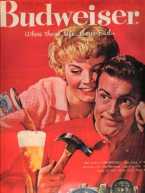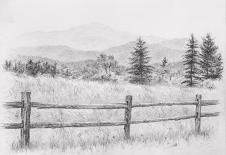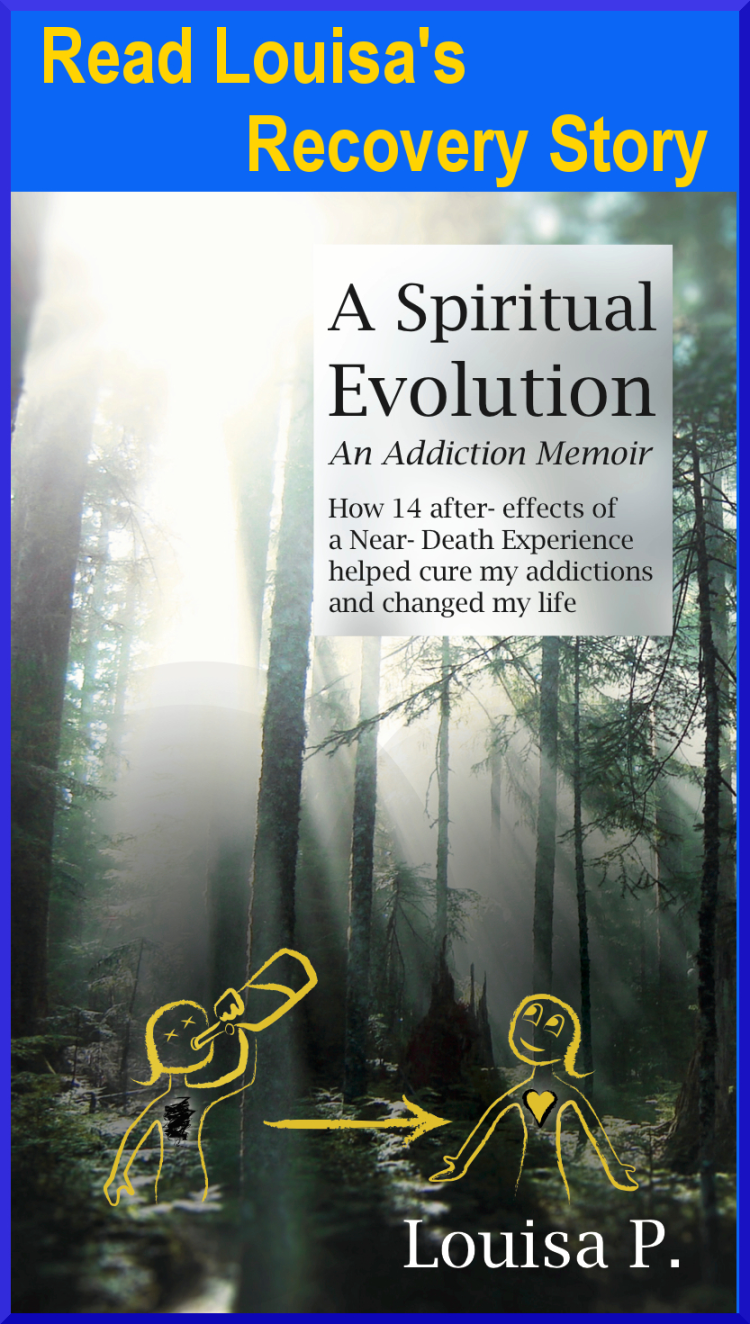The term “boundaries” used to irritate me. It’s always seemed such a pop-culture concept. I guess it’s a psych term popularized during the assertiveness craze of the 80s – actually, I have no idea – but I first heard people throwing it around a lot in the 90s. “That’s a boundary!” some woo-woo friend would exclaim, or, “You need to develop your boundaries” around this and that. Like a lot of pop-psychology terms, it’s always kind of made me barf.
I’m just that way. Whenever I don’t understand something, I’m quick to label it bullshit. Contempt prior to investigation and all that.
The fact is , though, I suck at boundaries and always have. I’m a people pleaser. Why? I grew up in an alcoholic home where we had trouble being honest about feelings because the most fundamental truth in the house had to remain that there was absolutely nothing wrong with Dad’s drinking. And because Dad was several different people depending on where he was in the cycle of irritable dryness, calm drinking, jubilant drinking, or self-disgusted hangover, while Mom and everyone else reacted to his state, I learned to look outside myself for the climate of reality.
, though, I suck at boundaries and always have. I’m a people pleaser. Why? I grew up in an alcoholic home where we had trouble being honest about feelings because the most fundamental truth in the house had to remain that there was absolutely nothing wrong with Dad’s drinking. And because Dad was several different people depending on where he was in the cycle of irritable dryness, calm drinking, jubilant drinking, or self-disgusted hangover, while Mom and everyone else reacted to his state, I learned to look outside myself for the climate of reality.
But more subtle still was the thin film of doubt between the truth inside me and the truth inside my family members. It isolated each of us. It prevented love from sinking in through my skin. I always felt valued for my various accomplishments rather than treasured for just being me. All this is pretty classic for alcoholic homes.
I also grew up being quite bossy to my younger sister. My older siblings had a sort of club that excluded us, so, as I relate in my addiction memoir, my younger sister was stuck with me. I could run the show in all our doings, but whenever conflict came up, Mom would frame me as the oppressor. Long story short: I grew up to suspect that my true self was mean, controlling, and unlovable.
When I got my first boyfriend, I remember so clearly the decision I made to play a role and stuff my true self! If I expressed what I really thought or wanted, he’d be repelled and leave me. It felt like some kind of vow of chastity or something, this inner resolve that I would win love by conforming myself to my best guess of whatever he wanted.
And I lived like that for decades.
Back to Boundaries. What are they, anyway? How do they work?
Working the 12 Steps of AA let me recognize the dance of Fear and Ego that orients so much of how I interact with others. I learned that I fear I won’t get what I think I want/need, so my ego steps in to try to arrange and control the players as I think best, and then resents them when they don’t follow my script. All true.
What I never saw until I went to Al-Anon was that one way – actually, my favorite way – of trying to control others was by doing exactly what I thought they wanted. It’s all about management through martyrdom. I’ve put not one but two partners through college, working at jobs I didn’t like to pay the rent and arranging my life around their syllabi. This was love by transaction. I sacrificed my needs for them so they’d be corralled and obligated to “favor” me with love – and if, along the way, I didn’t follow my own dreams, it was all their fault. Both those relationships crashed and burned.
Unfortunately, all I really learned from those experiences was: “Don’t put people through college.” In my current 9-year relationship, I’ve been blind to all the ways I’ve arranged my life around my current partner’s preferences. We don’t live together, and he’s rarely in town, so I seem quite independent. I have my own friends, my own programs, a busy life apart from him. From the outside, I’ve got it goin’ on. So it’s been harder to see the fact that I’ve dropped from consideration any requests I fear might displease him. I’ve preferred to resent his “selfishness” for following (martyred) signals I put out rather than seeing my own choice to edit those signals.
Upshot: I can have no boundaries unless I’m honest with myself. And I can’t be honest with myself if I lack humility. Who wants to say, “I’m afraid I’m not loveable; I’m afraid you’ll decide to leave; I’m afraid I’ll be alone forever” -? Humility is what lets us name and face this unglamorous truth: “I am flawed and frightened.” Once I can  name it,though, I can have the self-honesty to see where I’m bending over backwards to be loved. If god sees that with me, and we know it ain’t right, maybe I can muster the self-esteem to risk everything and trust god’s plan for me instead of my relationship management skills. Maybe I can take the plunge. I can ask for what I want despite fear, in the faith that no matter what happens, I’ll be okay.
name it,though, I can have the self-honesty to see where I’m bending over backwards to be loved. If god sees that with me, and we know it ain’t right, maybe I can muster the self-esteem to risk everything and trust god’s plan for me instead of my relationship management skills. Maybe I can take the plunge. I can ask for what I want despite fear, in the faith that no matter what happens, I’ll be okay.
What Al-Anon has helped me see is that I’ve always misconstrued boundaries as a fence to keep other people from intruding on my inner sensitivities. I’ve experienced angry siblings trampling all over my dignity and wanted protection – so that, I thought, would be a boundary. But today I see that boundaries actually delimit my own choices and behaviors. They’re about what I will and will not sign up for. For years I chose to stand within the trajectory of my siblings’ insults. Now the boundary is actually for me, the point at which I’ll remove myself. Likewise, for years I’ve chosen to mute my own needs for the sake of my boyfriend’s. Of course, any relationship involves compromise. But the boundary signals those compromises that actually detract from my life and well-being.
Boundaries, I’m learning, are not directed at other people. They’re about me recognizing the limit, the degree, the subtle gradation of that point at which my choices amount to self-harm – and refusing to cross it. They represent a deal with god to honor my innate worth rather than trying to wrangle it from others.
I’m so grateful for a set of programs that has opened my eyes to the difference!





One line in particular grabbed me by the throat: “I always felt valued for my various accomplishments rather than treasured for just being me.” Yup. Know about that. My parents both drank. Dad got nasty. Mom cried. But I still never gave it much thought. I just always thought my family was dysfunctional is your average generic sense, not an alcoholic one. It’s something for me to think about. Thank you for raising the question (I think).
LikeLiked by 1 person
Brine guy –
Here’s “the laundry list” of traits of adult children of alcoholics. When I first read it, I was floored. I thought because my Dad never got nasty, I’d gotten through unscathed. Not so much! If many of the items resonate for you, you might consider buying yourself a Red Book (ACA version of the Big Book). I put a link at the bottom.
🙂 L
The Laundry List – 14 Traits of an Adult Child of an Alcoholic
We became isolated and afraid of people and authority figures.
We became approval seekers and lost our identity in the process.
We are frightened of angry people and any personal criticism.
We either become alcoholics, marry them or both, or find another compulsive personality such as a workaholic to fulfill our sick abandonment needs.
We live life from the viewpoint of victims and we are attracted by that weakness in our love and friendship relationships.
We have an overdeveloped sense of responsibility and it is easier for us to be concerned with others rather than ourselves; this enables us not to look too closely at our own faults, etc.
We get guilt feelings when we stand up for ourselves instead of giving in to others.
We became addicted to excitement.
We confuse love and pity and tend to “love” people we can “pity” and “rescue.”
We have “stuffed” our feelings from our traumatic childhoods and have lost the ability to feel or express our feelings because it hurts so much (Denial).
We judge ourselves harshly and have a very low sense of self-esteem.
We are dependent personalities who are terrified of abandonment and will do anything to hold on to a relationship in order not to experience painful abandonment feelings, which we received from living with sick people who were never there emotionally for us.
Alcoholism is a family disease; we became para-alcoholics and took on the characteristics of that disease even though we did not pick up the drink.
Para-alcoholics are reactors rather than actors.
Tony A., 1978
RED BOOK: http://shop.adultchildren.org/product.php?productid=17681
LikeLiked by 1 person
Thank you for sharing this. I’ve been meaning to check ACA out.
LikeLike